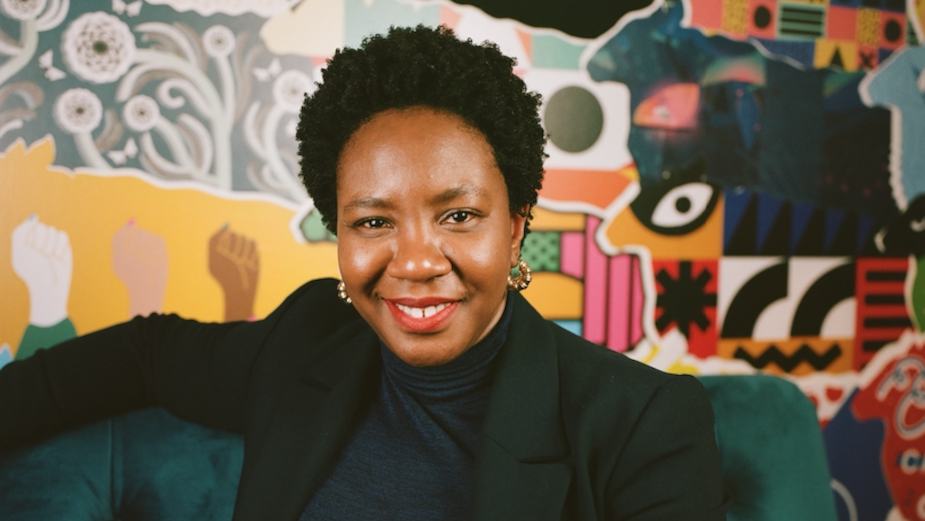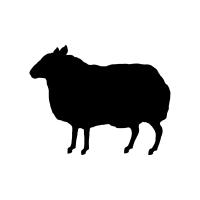
Planning for the Best: Rosie Collins on Embracing Flaws and Asking Questions

BBH London recently appointed Rosie Collins as head of strategy, joining from Ogilvy London, where she has been global strategy director for the past two years.
She’s made it clear already that her ambition is to bring a new generation of diverse talent into BBH from unexpected places, “creating a group of extraordinary and happy strategists who are equipped and empowered to create culture-shaping, standout work that works.”
At Ogilvy London, Rosie has been leading global strategy on Dove, working to modernise the brand’s purpose with the new platform, ‘Let’s Change Beauty’. She has also been developing the purpose and campaign platform for the UK launch of Shea Moisture. Within the WPP network she has played a key role in developing thought leadership and insight into the Black, Asian and minority ethnic consumer, as well as diversity and representation within the beauty industry.
In 2020, Rosie worked on UK Black Pride’s integrated digital, social and PR campaign ‘This is Me. This is Home’ to mark the 15th anniversary of Black Pride – Europe’s largest celebration for LGBTQ+ people of colour.
Keen to hear about the new energy coming to the BBH strategy department, LBB’s Alex Reeves asked Rosie about some of the finer points of planning.
LBB> What do you think is the difference between a strategist and a planner? Is there one?
Rosie> I don’t think that there is a difference. I’ve had both job titles and I’ve always been happy to be called by either one. I usually leave it to the company I’m working for to decide which one they prefer everyone to use.
Both describe what I do. My job is to understand the problem, bring a deeper understanding of the consumer, inspire the creatives with insight, develop and direct the strategic thinking and ensure that the work is effective. I’ve had the pleasure of doing this with both job titles.
LBB> We’re used to hearing about the best creative advertising campaigns, but what’s your favourite historic campaign from a strategic perspective?
Rosie> One of my favourite campaigns was from Skoda back in the early 2000s. People used to make a lot of fun of Skoda and if you were a Skoda driver, you were the butt of everyone’s jokes.
To overcome this stigma, Skoda launched a series of very funny ads that acknowledged Skoda's reputation for being the car no one would be seen dead in, while bringing to life the quality of the product. The line, “It’s a Skoda, honest”, was credited with transforming the reputation of the brand and boosting sales.
A year or two later, negative perceptions still existed so the brand launched new ads, under the same campaign, that showed potential customers talking knowledgeably to Skoda dealers but, rather than completing the deal, they bottled out at the last minute and ran away from the showroom. "It's a Skoda. Which for some is still a problem" was the new endline.
From a strategic perspective, these ads are brilliant, not only because they were incredibly effective at changing the perception of the brand and driving sales, but because the strategic approach focused on embracing the flaws of the Skoda and acknowledging them, rather than pretending that everything about the cars was perfect. This honest, transparent and authentic approach was what enabled the brand to connect with consumers and convince them to reconsider their purchase.
LBB> When you’re turning a business brief into something that can inform an inspiring creative campaign, do you find the most useful resource to draw on?
Rosie> I’m inspired by people. I always seek to understand on the deepest possible level the people we are trying to communicate with. I’m passionate about getting under the skin of people to understand what drives and motivates them and to understand their needs in the context of the brand that I’m working on. My inspiration comes from the way in which people are being influenced by or are shaping culture, whether that’s pop culture or big societal issues that are impacting culture.
LBB> What part of your job/the strategic process do you enjoy the most?
Rosie> The process of getting to inspiring human and cultural insights is what I enjoy the most. I’m always looking for opportunities to deepen the degree to which I can empathise with others. Generating insights from data and conducting research is where I feel I get to really strengthen my empathic muscle. I try to apply empathy for the people we’re communicating with in every brief that I work on.
LBB> What strategic maxims, frameworks or principles do you find yourself going back to over and over again? Why are they so useful?
Rosie> I probably shouldn’t admit to this, but I’m not disciplined enough to always use frameworks. I think they can sometimes get in the way of our ability to tell interesting stories. Having said that, Holt and Cameron’s - 6 stage Cultural Strategy Model is a great model for conducting upstream big brand thinking. I often use The Triangle of Truth - Human Truth, Cultural Truth, Brand Truth, and I find it to be a simple and effective way of framing my thinking.
I use ‘In a world where…the brand believes that…’ statements. I think they help to define and articulate the brand purpose. They can also be useful when briefing creatives, and in brainstorms and workshops to open the creative process and begin to answer briefs. I’m one of those planners who still believes in the power of a well written, single-minded proposition. In my opinion it just gives the brief a focal point and acts as a springboard to ideas. I’m a bit of a stickler for simplifying the thinking as much as possible. Doing so helps us to focus on what is most important.
In terms of a maxim or a rule that I try to live by, it is to question, question, question. I get the sense sometimes that planners are starting to feel worried about asking questions. I hear this from more junior planners a lot and this is concerning. We need to ask good questions to get to great work. We should never be afraid to ask questions.
LBB> What sort of creatives do you like to work with? As a strategist, what do you want them to do with the information you give them?
Rosie> I really enjoy working with collaborative creative; creatives who like to partner with strategists and build ideas together. I can work alone but I don’t enjoy it as much. I prefer to have someone to vibe with and bounce ideas off, so I’m always excited when I get to work with creatives who enjoy a collaborative process with strategists. Luckily for me, I’ve had some great creative/strategic partnerships over the years, and I look forward to more of them.
LBB> There’s a negative stereotype about strategy being used to validate creative ideas, rather than as a resource to inform them and make sure they’re effective. How do you make sure the agency gets this the right way round?
Rosie> Forging a strong partnership between creatives and strategists is how you make it work. Egos must get out of the way on both sides. Creatives are not here to make planners feel good about crap strategy and equally, planners are not here to just validate ideas, especially ideas that aren’t that good. We are here to inspire and develop ideas and to ensure that they will resonate with consumers and deliver results for our clients.
LBB> What have you found to be the most important consideration in recruiting and nurturing strategic talent? And how has Covid changed the way you think about this?
Rosie> When recruiting, my most important consideration is to find talented people that will both compliment the team and add an element of difference. It’s important to look beyond the usual places to find diverse, courageous and extraordinary thinkers who have the breadth of experience and specialist skills to bring a fresh perspective to any strategic challenge.
When it comes to nurturing talent, I want every person in my team to know that I care. I try to get to get to know everyone on a work and personal level. I also seek to understand what they excel at and then I try to enable each team member to play to their own strengths. If people feel supported, they tend to grow with the business, which creates a dynamic work environment.
LBB> Do you have any frustrations with planning/strategy as a discipline?
Rosie> The only thing that I sometimes get frustrated by is all the talk of having a ‘planning community’ within an agency and no action to establish one. I would call on all HOP and CSOs in adland to commit to establishing a planning community in their agencies. Bring planners together, encourage them to sit together, mentor one another, support each other and be there for one another. There is often too much working in isolation or focus on individuals, and not enough career development or coming together as a team. Some of the things required to establish community might make some people feel a bit uncomfortable at first or require a bit of budget, but it is worth it. It would enable individual planners to feel connected and supported, and ultimately, it will lead to better work.
LBB> What advice would you give to anyone considering a career as a strategist/planner?
Rosie> Be yourself. Be confident. Practise honing your ideas and thinking. Share your ideas on how to make things better in the work, the discipline, the industry or the culture in which we work and get to great ideas. The industry is going through change. It needs to change. The best employers are embracing this and are looking for people who can help to drive that change, so be one of those people.













